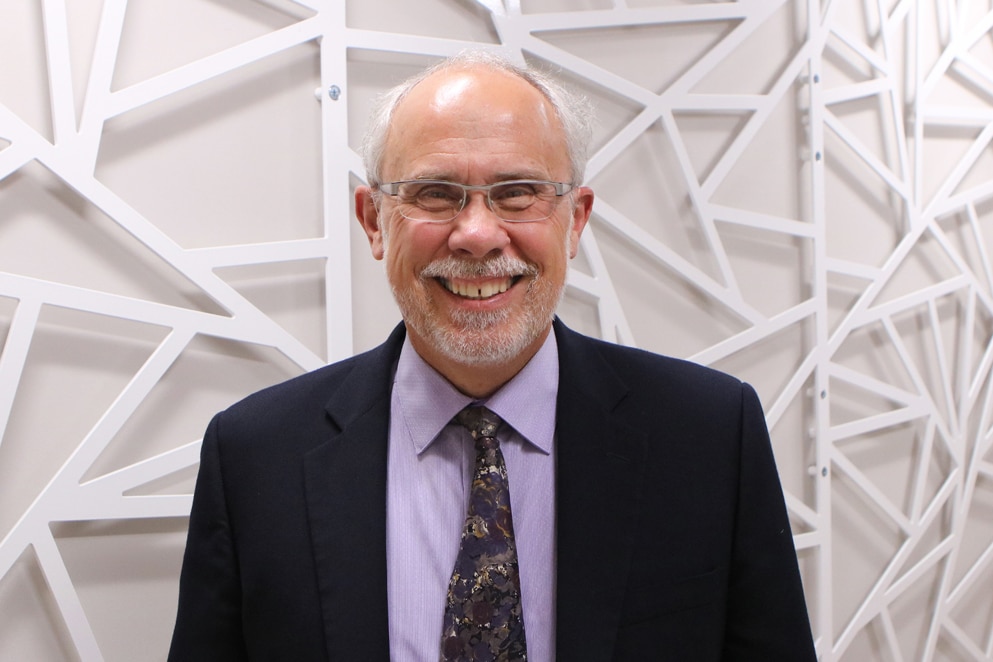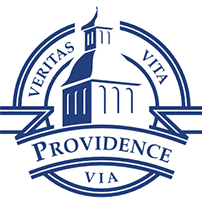Corporation Dinner, October 13, 2017
Presented by Dr. David Johnson, Providence President
Tonight, as we begin our annual meeting, we acknowledge that Providence rests on lands occupied over many centuries by the Cree and Anishinabe peoples, joined later by the Metis. Their descendants are found in the Red River Metis and the Roseau River Anishinabe First Nation community. It is within their territory that our activity as a Christian educational institution takes place under Treaty One, signed in 1871. We honour them as current hosts and original trustees of this part of God’s creation. May we live well in the land together!
I have five points tonight.
One: Where is Providence Going?
When I first became president of Providence, I asked a friend what he wanted from me as a president. He said, “I want to know where Providence is going.” I had some ideas in my head at the time. More recently, my ideas along with those of others have crystalized into an image of climbing Mount Everest to become one of the leading Christ-centred universities in Canada. So what does a leading Canadian Christ-centred university look like in the 21st century? In the January 2017 edition of the Eye Witness I answered this way:
“Let’s think first about the term university. These days it signals a post-secondary educational institution with a number of different schools. Providence will be an institution with a School of Arts and Sciences, the Buller School of Business, a Modern Language Institute, a School of Performing Arts, a Theological Seminary, Mile Two Discipleship School, and others. What is missing in many of today’s universities is actually what makes a uni-versity. It is the singular focus that ties all these various entities together. For Providence, that focus will be a commitment to the centrality of Holy Scripture in everything we do and to Christ in whom all things hold together (Col 1:17).
“Second, let’s think about the term ‘Canadian’. The values of generosity, kindness, respect and freedom are what makes Canada stand out in the world. It is one of, if not the greatest country on earth because of these values. Our vision is to be truly Canadian. We want to be an example of what Canada aspires to be. Interestingly, the four values I mention above are Christian values. So in being Canadian we are being Christian, and in living Christian values we become true Canadian citizens.
“Finally, let’s think about the term ‘Christ-centred’. Being centred on Christ is what makes us different. It is what makes us who we are. Being Christ-centred affects our belonging, our behaviours and our beliefs. All three are equally important. Being Christ-centred means belonging to the church. We think God has ordained the church as the instrument to exhibit God’s grace to the world. We want to do our part to make the church stronger by teaching and training its leaders. Being Christ-centred determines our behaviours. Our Covenant of Community Life is a fully Christian document using biblical concepts to describe how we aspire to live as individuals and in community. Being Christ-centred determines our beliefs. We adopt a Christian worldview that is determined by the incarnation of God in Christ, the death of Jesus for our sins and his resurrection for our life and the second coming of Christ to make the world what God intends it to be. Finally, being Christ centred means that our primary loyalty is to him. We will make whatever sacrifices are necessary to achieve his mission; we will do what he calls us to do; we will exalt him among the nations.
“This is our Everest. To really make a difference in the church and in communities around the world. To be truly a university. To be truly Canadian. And to be truly Christ-centred. This is a great adventure. We are making a base camp now. Then we will climb.”
Two: We have just about assembled the resources for the climb. Base camp is nearly ready.
As of September 27, we have over $11 million in cash and pledges toward our goal of $12.5 million for Impact 2020: The Campaign for Providence. The campaign has allowed us to:
- Begin a Bachelor of Business Administration and Bachelor of Science
- Expand our capacity for distance education
- Begin an Anabaptist track in the Master of Divinity program and a leadership track in the Master of Arts program
- Develop a new website
- Develop a comprehensive enrollment plan that includes enrollment, retention and marketing
- Add $300,000 to the annual budget through a more successful fund development program
We have instituted an aggressive four-year plan to improve salaries, which began last January.
We have new people in many positions. There are 32 people who have been with us for two years or less. At the same time, there are 40 people who have been here for ten years or more. That is a pretty good mix of new and old.
In the last six years we have reversed a downward trend in enrollment. We had 441 students in 2011. This year overall we have 500 students—the largest student body since 2009. Our first year undergraduate class is up by 19 per cent. New students in the seminary are up by 25 per cent.
We have had a budget surplus for three years in a row while increasing our budget to over $8 million—more than a million-dollar increase.
With a good insurance settlement to replace Bergen Hall, we have the start of a fund that will allow us to build a living and learning residence life program that is one of the best in Canada.
Three: We still face challenges and risks.
We have not figured out how to make Mile Two viable. This is a great program. Students’ lives are being radically transformed for Christ. We need eight more students per year.
The number of Canadians attending higher educational institutions has been static. There is a shrinking pool of teenagers in Canada, but the rate of participation in higher education has gone up, so the number of people wanting higher education is not decreasing or increasing. If we are going to grow, we have to gain a larger share of those who attend.
The public opinion of higher education has changed. People do not see the value of being educated unless it can lead directly to a good-paying job. It used to be that people did an undergraduate degree to get an education and a Master’s degree to get a job. This is no longer a popular opinion. People (and parents) want a good paying job to lie at the end of an undergraduate program. Society needs to understand that a student’s major may help them get their first job, but a broad education will help them get every job after that.
The public opinion of Christian organizations has changed. The secularization of the so-called higher levels of society has caused the denigration of serious Christians. We have lost the respect we once had. Part of this is the fault of a society that has gone awry. Part of it is our fault for not engaging at the highest intellectual levels and for not having life-styles of generosity, kindness, honesty and integrity.
We face social, political and economic uncertainties. The events of September 11, 2001, the 2008 recession and recent elections around the world have put the world on edge. It’s not the world we once knew. Only God knows what the future holds.
Four: Next Steps in the Climb.
We will build a new residence that will help us teach people to grow in knowledge and character for leadership and service. Of the many directions we could go as an institution we think the best way to fulfill our mission is to establish Providence firmly as a living and learning community. We are going to give students a strong, life-changing, holistic and personal educational experience. They will leave Providence as great Christian people who will make a difference in their churches and in their communities. The Seminary will continue to build a living and learning community on campus and at a distance.
We will create barrier-free education. This includes removing economic barriers for those who can’t afford a small college education. We will continue to build our endowment to support student scholarships. Our endowment at present is $1.4 million. We generally use about 4 per cent of this each year and let the additional growth accumulate for the future. We have 30 people who have told us they have included Providence in their estate plan. Most of these gifts will go into our endowment in support of student scholarships. A barrier-free education also means a barrier free campus. Since 2000 we have built basically barrier-free buildings. But the Hanna Centre was built between 1919 and 1975 and needs a lot of changes to make it possible for mobility and sight-challenged students, staff and faculty to function fully as part of the Providence community.
We will build a financially healthy institution. We need to continue to pay our bills, provide competitive remuneration for our staff and faculty and create surplus budgets every year to overcome past deficits and weather short-term financial challenges in the future.
We have assembled resources to climb toward being one of the leading Christ-centred universities in Canada. We certainly face challenges and risks along the way. We have established some pretty audacious goals. Is it worth it?
Five: Why make the climb?
Steve Jobs invited people to join him in creating the Macintosh computer by asking them if they wanted to help him make a dent in the universe. We are going to make the climb because this is what God has called us to do to make a dent in the universe.
As Jesus said,“You are the light of the world. A city set on a hill cannot be hidden. Nor do people light a lamp and put it under a basket, but on a stand and it gives light to all in the house. In the same way, let your light shine before others, so that they may see your good works and give glory to your Father who is in heaven” (Matthew 5:14-16). We know that God calls people to be salt and light in the world.
“A sower went out to sow. And as he sowed, come seeds fell along the path, and the birds came and devoured them. Other seeds fell on the rocky ground, where they did not have much soil, and immediately they sprang up, since they had no depth of soil, but when the sun rose they were scorched. And since they had no root, they withered away. Other seeds fell among thorns, and the thorns grew up and choked them. Other seeds fell on good soil and produced grain, some a hundred-fold, some sixty, some thirty” (Matthew 13:3-8). We know that God is a farmer who sows the seed of the Word in the world and some of it falls on good soil and produces a large crop.
“The kingdom of heaven is like a grain of mustard seed that a man took and sowed in his field. It is the smallest of all seeds, but when it has grown it is larger than all the garden plants and becomes a tree, so that the birds of the air come and make nests in its branches. The Kingdom of heaven is like leaven that a woman took and hid in three measures of flour, till it was all leavened” (Matthew 13:31-33).” We know that the kingdom of God is like a mustard seed and yeast. They start small and grow into something useful and good.
Why make the climb? For Christ and his kingdom. We are light, God sows the Word, and it grows.


